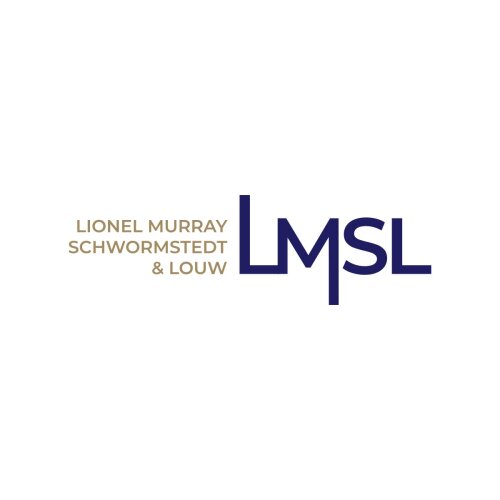Best Media and Entertainment Lawyers in Cape Town
Share your needs with us, get contacted by law firms.
Free. Takes 2 min.
List of the best lawyers in Cape Town, South Africa
About Media and Entertainment Law in Cape Town, South Africa
Cape Town, South Africa, is known for its vibrant media and entertainment industry, with a growing number of local and international productions being filmed in the city. Media and Entertainment Law in Cape Town covers a wide range of legal issues, including contracts, intellectual property rights, defamation, privacy, and regulatory compliance.
Why You May Need a Lawyer
You may need a lawyer specializing in Media and Entertainment Law in Cape Town if you are involved in a legal dispute related to copyright infringement, breach of contract, defamation, or any other issue within the industry. A lawyer can provide guidance, negotiate on your behalf, and represent you in court if necessary.
Local Laws Overview
Some key aspects of local laws that are particularly relevant to Media and Entertainment in Cape Town, South Africa, include the Copyright Act, the Films and Publications Act, the Electronic Communications and Transactions Act, and the Protection of Personal Information Act. These laws govern various aspects of the industry and offer legal protection to individuals and companies operating within it.
Frequently Asked Questions
1. What is intellectual property and how does it apply to Media and Entertainment?
Intellectual property refers to creations of the mind, such as inventions, literary and artistic works, and symbols, names, and images used in commerce. In Media and Entertainment, intellectual property rights protect original content such as music, films, books, and trademarks.
2. What is defamation and how can I protect myself from being sued for it?
Defamation is the act of making false statements about someone that harm their reputation. To protect yourself from being sued for defamation, ensure that your statements are true, or are opinions based on facts, and avoid making damaging statements about someone's character or reputation.
3. What should I include in a media or entertainment contract?
A media or entertainment contract should clearly outline the terms and conditions of the agreement, including payment terms, deliverables, deadlines, intellectual property rights, confidentiality clauses, and dispute resolution mechanisms. It is advisable to have a lawyer review any contract before signing it.
4. How can I register a copyright for my work?
In South Africa, copyright protection is automatic upon the creation of original work. However, to enforce your copyright in court, it is advisable to register your work with the Companies and Intellectual Property Commission (CIPC) to have a public record of ownership.
5. What are the regulations for filming in public spaces in Cape Town?
Before filming in public spaces in Cape Town, you may need to obtain permits from the relevant authorities, such as the City of Cape Town Film Permit Office. These permits may include conditions related to filming times, equipment, traffic management, and community engagement.
6. What are the consequences of breaching a non-disclosure agreement in the media and entertainment industry?
Breaching a non-disclosure agreement (NDA) in the media and entertainment industry can result in legal action, including financial penalties, injunctions to prevent further disclosures, and damage to your reputation. It is crucial to understand the terms of any NDA before signing it.
7. How can I protect my personal information as a media or entertainment professional?
To protect your personal information as a media or entertainment professional, you should be cautious about sharing sensitive details online or with third parties. Implement strong cybersecurity measures, use secure communication channels, and be aware of your rights under the Protection of Personal Information Act.
8. What are the differences between fair use and copyright infringement in Media and Entertainment?
Fair use allows limited use of copyrighted material without permission for purposes such as criticism, comment, news reporting, teaching, scholarship, or research. Copyright infringement, on the other hand, occurs when someone uses copyrighted material without permission in a way that violates the owner's rights.
9. Can I use someone else's content in my own work without permission?
Using someone else's content in your own work without permission may constitute copyright infringement. It is advisable to seek permission from the copyright owner or determine whether your use falls under fair use exceptions before incorporating someone else's content into your work.
10. What should I do if I receive a legal notice related to my media or entertainment activities?
If you receive a legal notice related to your media or entertainment activities, it is essential to seek legal advice as soon as possible. A lawyer specializing in Media and Entertainment Law can review the notice, advise you on your rights and obligations, and represent you in negotiations or court proceedings.
Additional Resources
For more information about Media and Entertainment Law in Cape Town, South Africa, you can contact the South African Guild of Actors, the Independent Communications Authority of South Africa, or the Cape Film Commission. These organizations provide resources, guidance, and support to individuals working in the media and entertainment industry.
Next Steps
If you require legal assistance in Media and Entertainment Law in Cape Town, South Africa, reach out to a reputable law firm specializing in the field. Schedule a consultation to discuss your legal issues, seek advice on your rights and options, and work with a qualified lawyer to resolve any legal disputes or concerns you may have.
Lawzana helps you find the best lawyers and law firms in Cape Town through a curated and pre-screened list of qualified legal professionals. Our platform offers rankings and detailed profiles of attorneys and law firms, allowing you to compare based on practice areas, including Media and Entertainment, experience, and client feedback.
Each profile includes a description of the firm's areas of practice, client reviews, team members and partners, year of establishment, spoken languages, office locations, contact information, social media presence, and any published articles or resources. Most firms on our platform speak English and are experienced in both local and international legal matters.
Get a quote from top-rated law firms in Cape Town, South Africa — quickly, securely, and without unnecessary hassle.
Disclaimer:
The information provided on this page is for general informational purposes only and does not constitute legal advice. While we strive to ensure the accuracy and relevance of the content, legal information may change over time, and interpretations of the law can vary. You should always consult with a qualified legal professional for advice specific to your situation.
We disclaim all liability for actions taken or not taken based on the content of this page. If you believe any information is incorrect or outdated, please contact us, and we will review and update it where appropriate.









